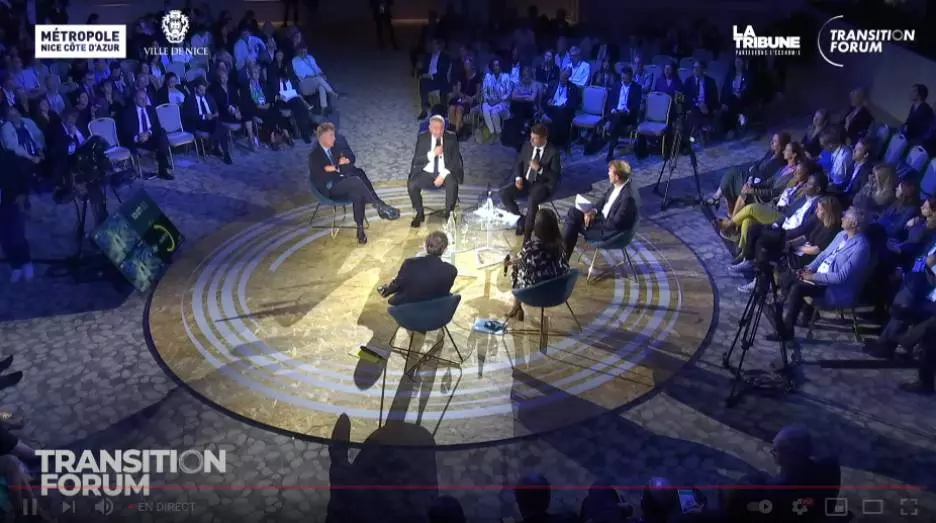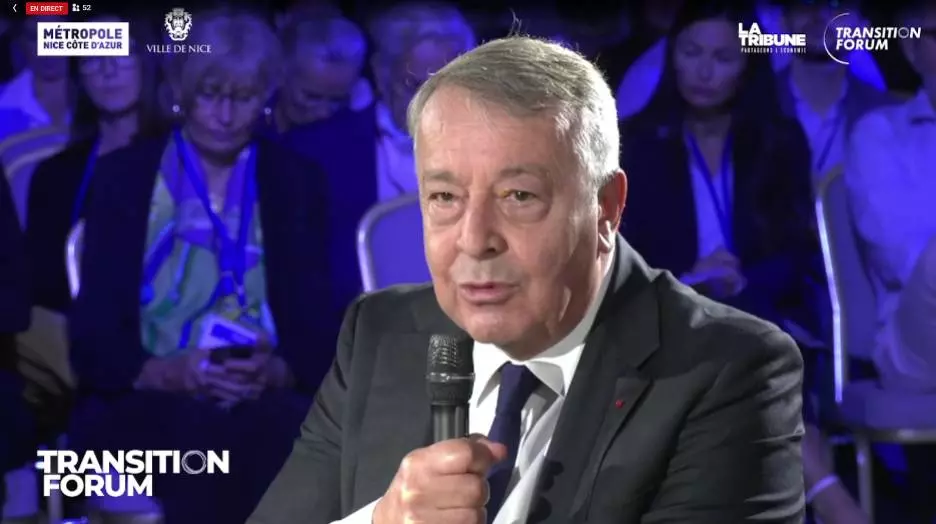With the theme “Time to cooperate”, the Transition Forum (30 September and 1 October in Nice) is dedicated to developing new cooperative actions to boost the ecological transition, in a context of European economic recovery and its Green Deal. Speaking on 1 October during the round table “Ecological transformation of territories: how can we speed it up?”, Veolia CEO Antoine Frérot presented the Group's various solutions.

Generalising known solutions
The new Veolia's plan to become the global champion of ecological transformation consists of supporting territories and industries in their own ecological transformation. To achieve this transformation, traditional solutions such as drinking water management, treatment of wastewater and waste, and urban heating are useful but will not suffice. The merger between Veolia and Suez gives the new group the means not only to continue its traditional activities, but also to duplicate and generalise all the solutions that we already know and which are insufficiently used.
Deploying new solutions
Concerning plastic recycling, for example: today we know how to recycle 85% of plastics and yet barely 20% is recycled in the world. We must develop collection systems, build recycling plants, and convince industrialists to gradually use recycled plastic more and more.

Another example in water management: reuse of wastewater is clearly the solution to the scarcity of water. Water is too precious a resource to be used only once. In France and in many countries, wastewater is not reused when it could be for agricultural uses, such as watering, but also for domestic uses. Several cities around the world are already supplied with drinking water from recycled wastewater. And microelectronics factories in Singapore use ultrapure water from recycled wastewater.
Inventing the solutions of tomorrow
If we want to succeed in the ecological transformation, we must invent solutions. Such as recycling electric vehicle batteries to extract the metals needed to make them. Or deploying solutions in buildings to guarantee better air quality. Or providing food for 10 billion humans in 30 years, with less water, less energy and less soil, using organic waste to feed livestock thanks to bioconversion. Or raising fish in aquaculture farms using recycled water.
Carbon capture will be essential because we will not be able to easily eliminate all coal consumption in the world. Already the waste heat from chimneys could be recovered to save fossil fuels. The captured carbon could be used to reseed soils depleted by intensive agriculture. This is the promise that Veolia wants to honour.

Achieving the ecological transformation
Created 170 years ago based on an observation by Pasteur: “We drink 90% of our illnesses”, Veolia has been ecological from the outset. And to make the ecological transition a success, the group is multiplying partnerships with associations, start-ups, and local communities. For example, the new, ultra-modern waste management project in Nice, which the city has entrusted to Veolia, to recycle and recover energy from the waste to produce green hydrogen”, concluded Antoine Frérot.

